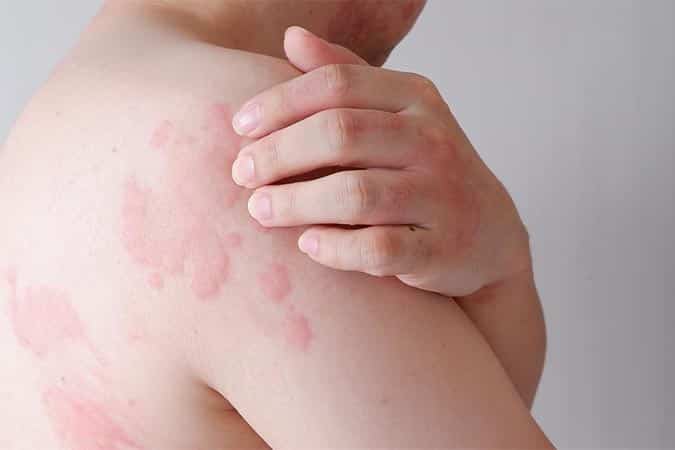What is Allergic Contact Dermatitis?
When the skin becomes sensitized after coming into contact with a certain substance, we call it allergic contact dermatitis. When a person has allergic contact dermatitis, their body will trigger an immune response that causes the skin to become red, irritated, and itchy. There are many different substances that may cause allergic contact dermatitis, including:
- Antibiotics
- Black henna (may be used for tattoos or in hair dye)
- Nickel or other metals
- Poison ivy and poison oak
- Preservatives, such as sulfites
- Rubber products, like latex
- Sunscreens
- Tattoo ink
- Detergents and cleaning products
- And more
When your skin comes in contact with an irritant, allergic contact dermatitis may appear right away or take 12 – 72 hours for symptoms to appear. Symptoms may include:
Who is a Good Candidate for Allergic Contact Dermatitis Treatment?
If you have a rash that will not go away or have skin that is always irritated, or have any of the symptoms listed above, you can benefit from contact dermatitis treatment. Assessment by a dermatologist is required to properly diagnose allergic contact dermatitis for treatment. During your consultation, your dermatologist will speak with you regarding your symptoms and create a treatment plan to help you feel your best.
What to Expect During Allergic Contact Dermatitis Treatment?
Prior to treatment, patch testing may be recommended to identify our allergens. This test involves applying small amounts of potential allergens to your skin in the form of adhesive patches. These patches stay on your skin for 48 hours. Subsequently, your doctor will check for skin reactions under the patches.
Treatment for this condition may look different depending on the severity. They may include the following:
For mild allergic contact dermatitis reactions:
- Antihistamine mediations
- Topical corticosteroids
- Soothing lotions and creams
- Oatmeal baths
For severe reactions that cause swelling and rashes:
- Oral corticosteroids like Prednisone
- Wet dressings
Allergic Contact Dermatitis FAQs
Can contact dermatitis spread?
Can dermatitis be caused by stress?
Can dermatitis be cured?
Can dermatitis be painful?
How common is dermatitis?
Can contact dermatitis get worse?
How do you get rid of contact dermatitis?
How do you get rid of vulvar dermatitis?
How do you treat dermatitis in hair?
Is eczema and dermatitis the same thing?
Following Allergic Contact Dermatitis Treatment
Following allergic contact dermatitis treatment, patients should experience fewer symptoms or less severe reactions to allergens. It is recommended, if possible, to avoid these allergens whenever possible. Your dermatologist can help you create a plan to avoid these agents for a more comfortable day-to-day life. If you do come into contact with an allergenic substance, wash the area with soap and lukewarm water as soon as possible.
Schedule a Consultation
To learn more about allergic contact dermatitis treatment, contact our office today to schedule your consultation with one of our dermatologists or physician assistants. Our team will be happy to answer any questions regarding treatment that you may have.

Get Started With A Visit!
Fill out the form below and we will reach out to you shortly to schedule an appointment.